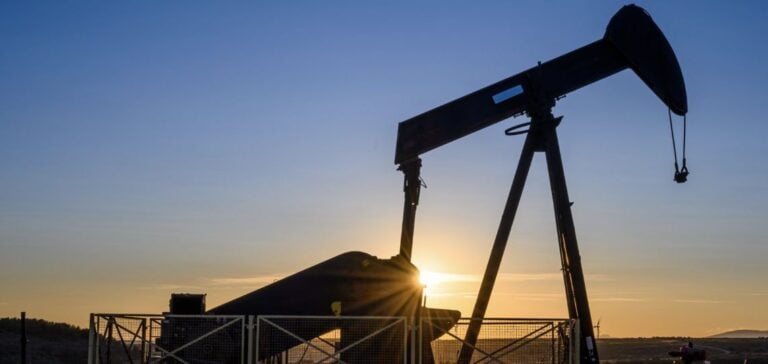After a decade of inactivity, European energy companies Eni (Italy) and BP (United Kingdom) have restarted drilling operations in Libya, marking a significant shift in the country’s oil production dynamics. This renewal comes amid a gradual stabilization following internal conflicts that have hampered Libya’s energy sector for years. The Libyan National Oil Corporation (NOC) announced this resumption on October 26, emphasizing the return of activity in the onshore field in partnership with the Libyan Investment Authority.
Eni has begun drilling operations in the Ghadames Basin, within Block B, where its A1-96/3 exploration well targets promising geological formations potentially containing oil and gas. Located only 35 kilometers from the Wafa field, with a production capacity of 37,000 barrels per day, the project aims to drill to a depth of over 3,000 meters.
Impacts on National Production
The resumption of BP and Eni’s drilling activities aligns with NOC’s efforts to achieve a national production goal of 2 million barrels per day (b/d) within five years, compared to the current production of around 1.15 million b/d. In this context, Akakus Oil Operations, a joint venture operating in the Sharara field, recently increased its daily production by 10,000 barrels, reaching 284,616 b/d. The Sharara field, Libya’s largest, is co-managed by a consortium including NOC, Repsol (Spain), TotalEnergies (France), OMV (Austria), and Equinor (Norway).
Impact of Recent Political Upheavals
The Libyan oil sector has remained sensitive to political disruptions. In August, eastern oil fields were shut down due to tensions between political factions over the management of oil revenue. This shutdown, which cut national production to 580,000 b/d in September, ended with the appointment of Naji Essa as governor of the Central Bank of Libya, securing an agreement from chambers in both East and West to stabilize the sector.
However, armed groups and political actors continue to pose a threat to oil production. While improved security has allowed for the resumption of activities, fields like El-Feel and Sharara remain vulnerable to political unrest. The El-Feel field, co-managed by Eni and NOC, nearly reached a record production level of 90,000 b/d after reopening in October.
Price Fluctuations and Export Outlook
The production of Es Sider crude, Libya’s primary export grade, recently depreciated, trading at a discount of $2.20/barrel to dated Brent—a decrease from a historic premium of $1 during the closures. The price volatility highlights the fluctuations of the Libyan market, which remains heavily influenced by internal tensions.
Eni and BP, along with other European partners, continue to play a key role in the recovery of the Libyan oil sector. However, the stability of production remains uncertain, raising questions about Libya’s capacity to meet its long-term production goals in a politically volatile environment.






















